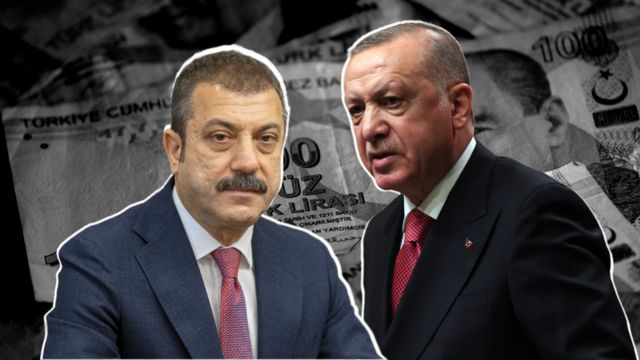1. What’s Erdogan’s beef with high interest rates?
He says first that they slow economic growth and second that they fuel inflation. The thesis is an issue at the forefront of Turkey’s financial system and one that’s unnerved international investors for years. While the country’s spending-and-credit binge during the pandemic propelled growth, the economy has also suffered from double-digit inflation and unpredictable policy moves.
2. Are his arguments reasonable?
The first is. When a central bank increases rates, banks are less able to borrow to maintain mandatory reserves and tend to lend at their own elevated rates. This makes loans for businesses rarer and more expensive and so can slow the economy. But Erdogan’s second notion — that elevated interest rates cause prices to rise — contradicts conventional economic theories. They hold that when rates increase, borrowing decreases, leading consumers to spend less and curbing inflation.
3. What’s the basis of Erdogan’s theory?
It’s likely that it’s at least partly based on his experience running businesses, mostly in the food industry, before his career as a politician took off. Many Turkish companies borrow relatively heavily to ensure they can cover operating expenses, making volatility in borrowing costs a source of uncertainty and rate hikes an added expense. In Erdogan’s view, higher interest rates result in higher prices because businesses have no choice but to pass increased costs on to their customers. This framework makes assumptions that orthodox economists challenge, such as that interest rates make up a significant part of companies’ costs and that producers have sufficient pricing power to impose their will on consumers.
4. Who agrees with Erdogan?
There are a few proponents of Erdogan’s view or a version of it. The argument that low interest rates produce low inflation was dubbed the “neo-Fisherite Rebellion” in 2014 by Noah Smith when he was an assistant professor of finance at Stony Brook University in New York. It was a reference to a theory by Yale University economist Irving Fisher on the relationships between inflation, nominal interest rates and real interest rates, which account for inflation. Critics of the neo-Fisherites say that even if their theory had merit, it wouldn’t apply to an economy like Turkey’s, which suffers from chronically high inflation and is reliant on foreign funding. Lowering interest rates reduces the return on investing in Turkish assets, and the local currency tends to weaken relative to others when foreigners decide to put their money elsewhere. That increases the cost of imported goods in liras and results in higher prices, or more inflation. In any case, the neo-Fisherite view hasn’t gained sufficient currency to become the foundation of any country’s monetary policy — though Erdogan is trying to make it Turkey’s.
5. What has Erdogan done to put his views into action?
Erdogan fired central bank Governor Naci Agbal just days after he raised interest rates in March. His replacement, Sahap Kavcioglu, is the country’s fourth central bank governor in less than two years and known as an advocate of lower rates. In October, Erdogan used a midnight decree to fire three members of the monetary policy committee who were wary of further interest rate cuts, deputy governors Semih Tumen and Ugur Namik Kucuk along with committee member Abdullah Yavas. In 2019, Erdogan also dismissed governor Murat Cetinkaya for failing to heed his policies, another of the many decisions over the years that Erdogan has taken to erode independence of the central bank. In other countries, giving central bankers the autonomy to determine short-term rates is seen as insurance against the impulse of politicians to boost credit at the expense of the economy’s longer-term health.
Toread the full article: https://www.washingtonpost.com/business/how-erdogans-unorthodox-views-rattle-turkish-markets/2021/10/18/015a6f2c-3004-11ec-8036-7db255bff176_story.html
